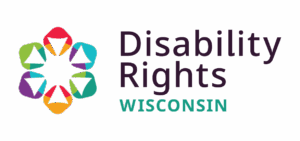What is Domestic Violence?
Domestic violence, also known as intimate partner violence, domestic abuse, or relationship abuse, is a pattern of behaviors used by one partner to keep power and control over another partner in an intimate relationship. This includes people who are married, dating, share a household, or have a child together. Domestic violence can include physical and sexual violence, threats and scare tactics, emotional abuse, and financial abuse.
Examples of behaviors may include:
- Physically harming another person;
- Creating fear in the other person;
- Stopping an individual from doing what s/he wants; and/or
- Forcing another person to act in ways that they do not want to act.
Examples of behaviors toward people with disabilities may include:
- Telling someone she or he is “not allowed” to feel pain;
- Stealing or withholding Social Security checks or misusing another’s money;
- Telling someone that she or he is a bad parent or cannot be a parent because they have a disability;
- Making statements that invalidate an individual’s disability (“You’re faking it” or “It’s all in your head”);
- Refusing to help with essential personal needs, such as toileting or bathing, when previously agreed to do so;
- Withholding or threatening to withhold medications;
- Withholding, damaging, or breaking assistive devices, such as wheelchairs or communication devices;
- Not allowing the individual with a disability to see his or her doctor; and /or
- Threatening to harm or harming service or emotional support animals.
Caregiver abuse
Many people with disabilities depend on assistance from caregivers and many times develop a relationship with his or her caregiver. Although most caregiving relationships are healthy, sometimes the caregiver becomes an abuser. Abuse by a caregiver is like other forms of abuse and should be reported. When the caregiver is the abuser, he or she may try to gain control by:
- Becoming the individual’s Power of Attorney or representative payee in order to control disability benefits;
- Attempting to isolate the individual from family, friends, or health care providers;
- Keeping mobility or breathing devices out of reach;
- Preventing his or her patient from speaking with a doctor privately;
- Withholding medication or food; and/or
- Refusing to assist with essential personal needs.
What is Sexual Assault?
Sexual assault is sexual contact or behavior that occurs without clear consent. If any sexual activity involves being pressured or forced, it is sexual assault. Sexual assault happens when an individual uses his or her power over another individual, taking away that individual’s control in choosing whether or not to engage in the sexual situation. Sexual assault includes attempted rape, forcing an individual to perform sexual acts, and being touched (doesn’t matter where) in a sexual manner against your wishes.
Statistics
- Rape/sexual assault happens to individuals with disabilities at 3 times the rate compared to their non-disabled peers.
- People with intellectual disabilities experience sexual assault at 7 times the rate of their non-disabled peers.
- 65% of people with disabilities who experience violent victimization are victimized by someone they know (compared to 52% of their non-disabled peers).
- 90% of people with developmental disabilities will experience sexual abuse in their lifetime.
- 50% of individuals with disabilities will experience 10 or more abusive incidents.
- Only 37% of people with disabilities abused report the abuse to law enforcement.
- Only 5% of reported cases lead to prosecution or conviction.
Why are people with disabilities less likely to report abuse?
- Fear
- They will not be believed
- Of the abuser
- Of losing a caregiver
- Of getting in trouble for telling
- Lack of knowledge or awareness
- Of what a healthy relationship is
- Of what sexual assault is or that what happened is sexual assault
- That there are agencies that can help
- May be unable to communicate or remember what happened
- Self-blame or shame
Your Rights:
- You have the right to know about your body and sexuality.
- You have the right to be treated with respect and dignity.
- You have the right to decide who can touch your body in any way.
- You have the right to be safe wherever you live and work.
- You have the right to say “No” if someone is doing something you do not want – even if the person doing it is someone you know or like.
Your Rights if abused:
- You have the right to tell someone that you were abused.
- You have the right to talk with police about your abuse.
- You have the right to ask someone you trust such as a therapist or counselor to talk with you about your abuse.
How to report abuse
Disability Rights Wisconsin is not a first responder agency for suspected abuse, neglect or exploitation.
If someone is in immediate, life-threatening danger, call the police or 9-1-1 immediately.
When suspected abuse, neglect, or exploitation involves a person with a disability or mental illness, particularly when that abuse occurs in a program or facility funded by the state, we encourage you to also report this suspected abuse, neglect, or exploitation to Disability Rights Wisconsin’s Protection and Advocacy system.
Disability Rights Wisconsin also provides advocacy assistance to victims of crime with disabilities regardless of whether that crime has been reported.
To report abuse of an elder (60 or older) contact your county Elder Abuse helpline.
To report abuse of an adult (18-59) contact Adult Protective Services.
The Division of Quality Assurance (DQA) is responsible for assuring the health, safety, and welfare of the citizens of Wisconsin. If you believe that a caregiver, agency, or DQA regulated facility has violated the law, you can file a complaint with DQA.
To report child abuse or neglect contact Child Protective Services.
For additional information on Domestic Abuse, visit the End Abuse Wisconsin website.
For suspected sex/human trafficking:
Call 1-888-373-7888 (TTY: 711)|Text 233733
